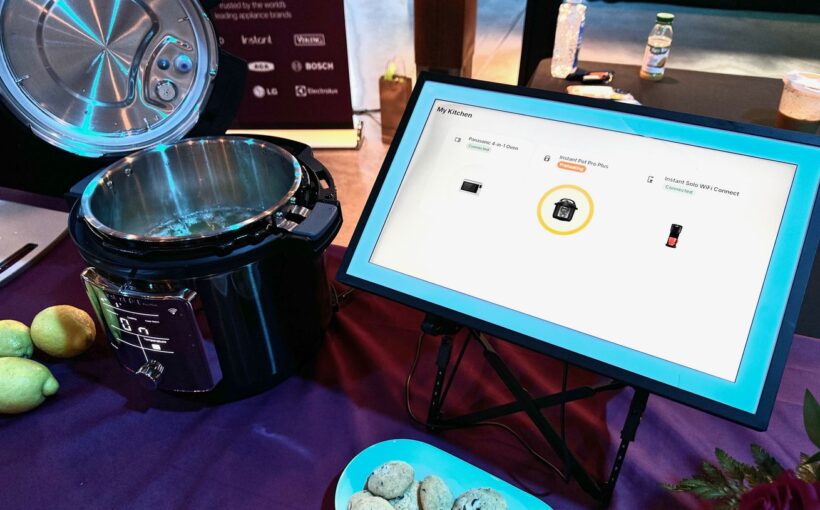
A new moment for connected cooking emerges at the Smart Kitchen Summit in Seattle.
The world didn’t need a Wi-Fi-enabled rolling pin, and we definitely don’t need Al in a rolling pin.” With this quip, culinary technologist Scott Heimendinger neatly summed up the theme of the Smart Kitchen Summit (SKS) held in Seattle this week.
To be successful, smart kitchen innovations need to address real problems in the kitchen, not just jump on the bandwagon of whatever is the sizzling hot thing in tech.
For example, take the Joule sous vide. One of the earliest smart kitchen gadgets, this beautiful piece of tech was almost impossible to use because it relied entirely on an app and Wi-Fi connectivity. Two things still largely alien to the kitchen of 2015.
Chris Young, former CEO of ChefSteps which developed Joule, told the SKS audience how the decision to not put a screen on the device lost them half their potential customer base. (Joule was rescued by Breville in 2019, which still hasn’t put a screen on it.)
Young’s latest gadget is the Combustion Predictive Thermometer Plus Display, an incredibly smart meat thermometer that not only has the option of a very big screen but doesn’t need Wi-Fi at all.
This type of pivot is emblematic of what I saw throughout the conference this week: a refocusing by the entrepreneurs and companies in the smart kitchen away from sleek, showy gadgets toward developing products built on an understanding of how people actually cook. Many of the solutions I saw and heard about seem designed to make cooking easier, healthier, and more personalized — the latter being something generative AI will clearly play a big role in.
Of course, there’s still plenty of gadgets — from robot chefs to wirelessly-powered appliances. But there’s also a shift toward improving the software that powers the smart kitchen. Rather than rely on individual apps built by appliance manufacturers, platforms like Fresco are working toward a universal kitchen OS — a cross-kitchen experience that can connect our appliances with each other and with the recipes we want to cook.
My ideal smart kitchen is one that knows what I have in my pantry and fridge, can develop me a meal plan based on those ingredients, shop for whatever extra items I need, then have my appliances prepped and ready to go when I start cooking.
While that dream is still a ways off, from what I saw this week, the future of the smart kitchen is coming into focus. I’ll be sharing snippets and stories around the things that caught my attention at the Smart Kitchen Summit over the next few days, so check back often.
-

TODAY, 12:45 AM GMT+2
Jennifer Pattison Tuohy
This induction cooktop works on a 120V outlet and packs a battery inside.Most induction requires a 240V outlet, but this new cooktop from Impulse Labs has a battery inside that stores up juice for when you want to cook.
This means it will still work when the power is out, but the company plans to make more appliances with batteries to eventually form a “fractionalized home battery backup system.”
The Impulse Cooktop costs $6,000 and should ship later this year.
:format(webp)/cdn.vox-cdn.com/uploads/chorus_asset/file/25482416/Impulse_Cooktop.jpg) The Impulse Cooktop has four 9-inch burners with a peak performance of 10 KW. Removable magnetic knobs and an LCD interface add control and an integrated 3 kWh LFP battery adds back-up power. Image: Impulse Labs
The Impulse Cooktop has four 9-inch burners with a peak performance of 10 KW. Removable magnetic knobs and an LCD interface add control and an integrated 3 kWh LFP battery adds back-up power. Image: Impulse Labs -




